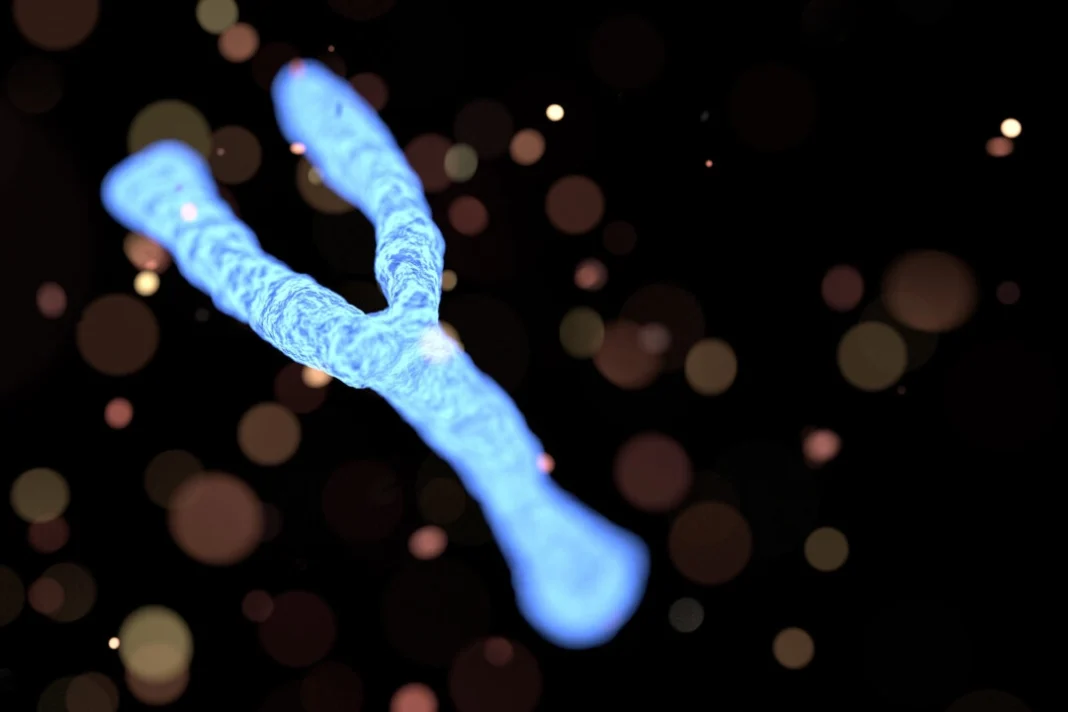|
Getting your Trinity Audio player ready...
|
New research analyzing more than 177,000 patients suggests the Y chromosome may increase autism risk
By: George Citroner
Scientists have found a potential new explanation for why autism affects boys at nearly four times the rate of girls: the male sex chromosome itself may increase the risk.
In a new study published in Nature Communications analyzing data from more than 177,000 patients, researchers found that individuals with an extra male sex chromosome, or the Y chromosome, were twice as likely to be diagnosed with autism spectrum disorder (ASD), while extra X chromosomes showed no such effect.
Understanding ASD and Sex Chromosomes
ASD is characterized by challenges in social interaction, communication, and behavior patterns, with boys being at significantly greater risk than girls. The reasons behind this disparity have long intrigued researchers.
“A leading theory in the field is that protective factors of the X chromosome lower autism risk in females,” Matthew Oetjens, an assistant professor at Geisinger’s Autism & Developmental Medicine Institute and co-author of the study, said in a statement.
To investigate the role of sex chromosomes in autism risk, Oetjens and his team analyzed data from 177,416 patients involved in the Simons Foundation Powering Autism Research (SPARK) study, an initiative dedicated to funding and advancing autism research, and the Geisinger College of Health Sciences MyCode Community Health Initiative, a large-scale genetic research project.
Among these patients, 350 had abnormal sex chromosomes. Their research specifically focused on people with sex chromosome aneuploidy, a genetic condition characterized by an abnormal number of X or Y chromosomes.
Male Chromosomes and Autism Risk
The researchers found that individuals with an extra X chromosome (XXY) did not exhibit an increased risk for ASD. However, those with an additional Y chromosome (XYY) were twice as likely to be diagnosed with ASD. This suggests that there is a risk factor specifically associated with the Y chromosome, rather than any protective effect related to the X chromosome.
“However, further research is needed to identify the specific risk factor associated with the Y chromosome,” Alexander Berry, a staff scientist at Geisinger and co-author of the study, said in a statement.
People with a missing X chromosome also had a high risk. A missing X chromosome had the biggest impact on autism risk, but the least impact on intelligence.
The researchers compared their results to another study and found similar patterns. However, there were some differences between the studies, possibly because the way they found people with autism was different.
Connection to Turner Syndrome
The results also confirm previous studies indicating that the deletion of an X or Y chromosome, as seen in Turner syndrome, is linked with increased ASD risk.
Turner syndrome only affects females and occurs when an X chromosome is missing or partially missing. This condition is associated with various medical and developmental issues, including ovarian failure, short stature, and heart defects.
Implications for Future Research
The researchers emphasized the necessity of further studies to better understand how the risk factors associated with sex chromosome aneuploidy contribute to the differences in autism prevalence observed between sexes.




